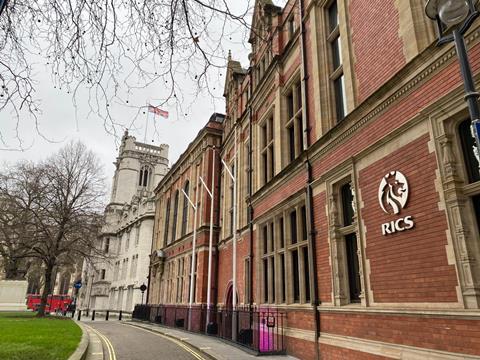Gaps in current policy make it difficult to assess progress
National policy regulating the sustainability of the built environment needs a drastic shake-up if the UK is to reach its net zero goals, according to a new report from the Royal Institution of Chartered Surveyors.
According to the body, gaps in the UK’s carbon policy mean it is difficult to track buildings’ carbon output and to measure whether retrofits are achieving their stated reductions.

These gaps include the lack of decarbonisation targets at sub-sector and individual building level, current metrics mandating building performance not translating easily into total carbon output and sparse data on embodied carbon output.
“This is an opportunity to radically shake up the sector and place it at the forefront of the UK’s carbon reduction initiatives by advancing a scientifically-focussed and data-driven sector that swiftly reacts and implements the changes needed to meet carbon output goals,” said Fabrizio Varriale, place and space analyst at RICS.
“By implementing the policy recommendations set out in this report, the UK government will maximise the impact that sustainability policies in the built environment sector will bring to achieving its net zero goals by 2050.”
>> Also read: ‘We’re trained as cost consultants to reduce cost – why not do the same with carbon?’
As well as the introduction of science-based decarbonisation targets, the paper calls for a national retrofit programme along with a range of other changes.
These include improving the EPC scheme, accelerating the development of a national performance rating system and amending Building Regulations to introduce embodied carbon requirements.




























No comments yet